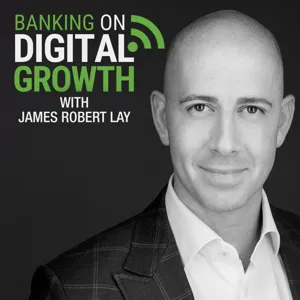Podcast Summary
Misconceptions of Stoicism as emotionless: Ancient Stoics, like Marcus Aurelius, acknowledged emotions and saw them as manageable, not to be suppressed.
Marcus Aurelius, the Stoic Emperor, was not a heartless figure as commonly perceived. Contrary to modern beliefs that stoics are unemotional, Marcus displayed emotions throughout his life, as revealed in Donald Robertson's new book, "Marcus Aurelius, the Stoic Emperor." Robertson, a cognitive behavior psychotherapist and author, highlights Marcus' emotional responses, such as grief when his favorite tutor died. This contrasts with the popular image of stoicism as being about suppressing emotions. In fact, ancient Stoics had a more nuanced understanding of emotions, viewing them as natural responses that could be managed, not suppressed. This perspective challenges the simplistic view of stoicism as being about being unemotional. Marcus' life and writings show that stoicism was a practical philosophy that helped him navigate his tumultuous rule and personal challenges.
The Stoics viewed emotions as a clockwork mechanism: The Stoics believed in accepting involuntary emotions and focusing on our response to them, shaped by Marcus Aurelius's childhood experience and his father's death
The Stoics, like Marcus Aurelius, viewed emotions differently than modern self-improvement approaches. While we often see emotions as a blob of energy that can be suppressed or vented, the Stoics saw emotions as a clockwork mechanism with voluntary and involuntary aspects. They believed in accepting involuntary emotions but focusing on how we respond to them. Marcus Aurelius's childhood, specifically his father's death when he was young, shaped his character and view on life. His father, a senior Roman magistrate, was on a career path to become a powerful statesman but died prematurely. This event likely influenced Marcus to value strength of character, kindness, and modesty, which he saw as true manliness.
Marcus Aurelius's Childhood and Influences: Marcus Aurelius's loss of his father and influential mother shaped him into a great philosopher, with Greek culture and philosophy significantly impacting his conception of manliness.
Marcus Aurelius, known for his stoic philosophy, was deeply influenced by his experiences in childhood, particularly the loss of his father. He spent his life seeking father figures and found solace in philosophy, with Greek culture and philosophy having a significant impact on his conception of manliness. His mother, a wealthy and powerful woman in Roman society, played a crucial role in his education and likely influenced his intellectual development, including his interest in stoicism. She surrounded herself with intellectuals and provided him with a strong education, including hiring private tutors. Marcus's upbringing, marked by the absence of a father figure and the presence of a strong, educated mother, shaped him into one of history's greatest philosophers.
Marcus Aurelius's deliberate omission of Herodas Atticus from his writings: Marcus Aurelius's failure to mention Herodas Atticus, a close friend and intellectual, could have been a deliberate act to damage his reputation in ancient Roman culture.
Marcus Aurelius, in his writings, deliberately omitted mentioning Herodas Atticus, a famous intellectual and family friend, despite their close relationship during Marcus's childhood. This omission would have been considered damning in ancient Roman culture, as if Marcus was erasing Herodas Atticus from history. Herodas Atticus was known for being a great philosopher, writer, and philanthropist, but Marcus instead fondly remembered an unnamed tutor who taught him life lessons during his early education. This snub could have been due to Herodas Atticus's controversial actions or personality, such as lunging at Marcus during a trial or even allegedly killing his pregnant wife. The ancient Romans understood the power of ignoring someone, and Marcus's subtle disregard may have been a savage act to destroy Herodas Atticus's reputation.
Marcus Aurelius' Early Mentor Shaped Him into a Philosopher: Marcus Aurelius' mentor introduced him to philosophy young, taught self-improvement, tolerated others, and adopted disciplined lifestyle.
Marcus Aurelius' early mentor played a significant role in shaping him into a philosopher. This man introduced him to philosophy at an unusually young age and taught him valuable life lessons, such as focusing on self-improvement, tolerating others' freedom of speech, and avoiding distractions. He also encouraged Marcus to adopt a disciplined lifestyle, possibly inspired by Greek military cadet training, which included practices like fasting, drinking water, wearing simple garments, and sleeping on a plank bed. These teachings instilled in Marcus a strong work ethic and dedication to personal growth that would serve him well throughout his life.
Hadrian's complicated choice of successor and Marcus Aurelius' intimidation: Roman emperors' succession was influenced by personal relationships, power dynamics, and psychological factors, leading to complex and strained relationships between rulers
Marcus Aurelius, the renowned Roman emperor and philosopher king, had a complex and strained relationship with his predecessor, Emperor Hadrian. Hadrian, known for his physical opulence and psychological instability, selected Marcus as his successor despite having no children of his own. This choice was influenced by Hadrian's lack of a biological heir and his possible preference for same-sex relationships. Marcus, who was intimidated by Hadrian's behavior and lifestyle, was made to live in Hadrian's villa, where he may have learned more about what not to do as a leader. Despite Hadrian's eventual selection of Marcus as his successor, their relationship was marked by Hadrian's political purges and Marcus' fear and intimidation. This dynamic highlights the power dynamics and complexities of Roman leadership and succession.
Marcus Aurelius's Admiration for Antoninus: Marcus Aurelius admired Antoninus's plainness, philosophical nature, and leadership qualities, and sought to emulate him despite their differences. Marcus struggled with his temper and turned to Stoicism to manage his emotions and become a virtuous and effective leader.
Marcus Aurelius, the Roman Emperor, saw Antoninus as the ideal emperor and sought to emulate him, despite their significant differences from Hadrian. Marcus admired Antoninus's plainness, philosophical nature, and leadership qualities. However, Marcus struggled with his temper and frustration with the courtiers and senators, leading him to turn to Stoicism as a means to manage his emotions and become more like his adoptive father. Unlike Hadrian, Marcus did not view greed as a significant issue due to his aristocratic background. Instead, his primary concern was maintaining his reputation and dealing with irritation and anger. Marcus's admiration for Antoninus and his efforts to adopt his qualities reveal his desire to be a virtuous and effective leader.
Marcus Aurelius' Dream of Ivory Shoulders: Marcus Aurelius' perceived weakness for philosophy transformed into strength, symbolized by ivory shoulders in a dream, and his practical education from Rusticus contributed to his effective rule as emperor.
Marcus Aurelius, the Roman emperor, had a dream in which his arms and shoulders turned to ivory, symbolizing his internalization of philosophy and transformation of character. Prior to this dream, Marcus was perceived as weak due to his love for philosophy. However, in the dream, he discovered that this perceived weakness became a strength, allowing him to become a good emperor. This interpretation is based on the metaphor of strong athletic shoulders in Greek and Roman society, representing evidence of having done the training. Marcus's most important tutor for stoicism was Rusticus, a Roman elite and statesman, who likely provided a more practical approach to philosophy, contrasting Marcus's earlier theoretical education.
Marcus Aurelius' Encounter with Epictetus' Discourses: Marcus Aurelius discovered Epictetus' private teachings through Rusticus, which deeply influenced him and sparked a lifelong journey of self-improvement
The encounter between Marcus Aurelius and Rusticus, who provided him with the transcribed discourses of Epictetus, was a pivotal moment in Marcus' life. These discourses were meant for a private circle and had never been intended for publication. For Marcus, who had likely missed the opportunity to meet Epictetus in person, receiving these teachings was like discovering bootleg recordings of a beloved band. Rusticus introduced Marcus to the practical aspect of Stoicism as a therapy for the soul, a concept that resonated deeply with Marcus and set him on a path of introspection and self-improvement. The missing volumes of Epictetus' discourses suggest that Marcus had a deep understanding of Epictetus' teachings, and the challenging nature of their relationship allowed Marcus to confront and work on his character flaws, such as anger and vanity.
Meditations of Marcus Aurelius: A Stoic Guide to Personal Growth and Resilience: Marcus Aurelius, the Roman emperor, used Stoic philosophy to navigate challenges during his reign, focusing on what's within his control, managing emotions, and living in reason. His private journal, The Meditations, reflects his personal growth and serves as a record of Stoic strategies.
Marcus Aurelius, the Roman emperor, used Stoic philosophy to navigate the numerous challenges he faced during his reign, including natural disasters, military invasions, and a plague. He distinguished between what was under his control and what wasn't, took responsibility for his emotions, and lived consistently in accord with reason. The Meditations, a private journal he wrote during this time, served as a substitute for his mentor Risticus and became a record of his contemplative practices and Stoic strategies. Marcus likely wrote the Meditations during the plague and wars, as evidence suggests, and it reflects his efforts to mentor himself and overcome personal challenges. The text also highlights the idea that Stoic philosophy, like therapy, can be painful and challenging, but ultimately leads to personal growth and resilience.
Marcus Aurelius' journaling technique for personal growth: Marcus Aurelius' journaling was not just about recording thoughts, but about digging deeper each time and finding more accurate and powerful ways to express essential ideas. This process of repetition and refinement helped him internalize these ideas and make them a part of his character.
Effective journaling, as demonstrated by Marcus Aurelius, involves being concise, focusing on key ideas, and striving to deeply understand and internalize those ideas. This approach can help prevent journaling from becoming a symptom of rumination and instead lead to meaningful personal growth. Marcus's journaling was not just about recording thoughts, but about digging deeper each time and finding more accurate and powerful ways to express essential ideas. This process of repetition and refinement helped him internalize these ideas and make them a part of his character. To learn more about Marcus Aurelius and Donald Robertson's work, check out his book "Marcus Aurelius, The Stoic Emperor," his Substack, or the organizations Modern Stoicism and Plato's Academy.













